2022 NSYSU Transcultural International Conference: Thinking the Possibilities of Co-Becoming at this Critical Time
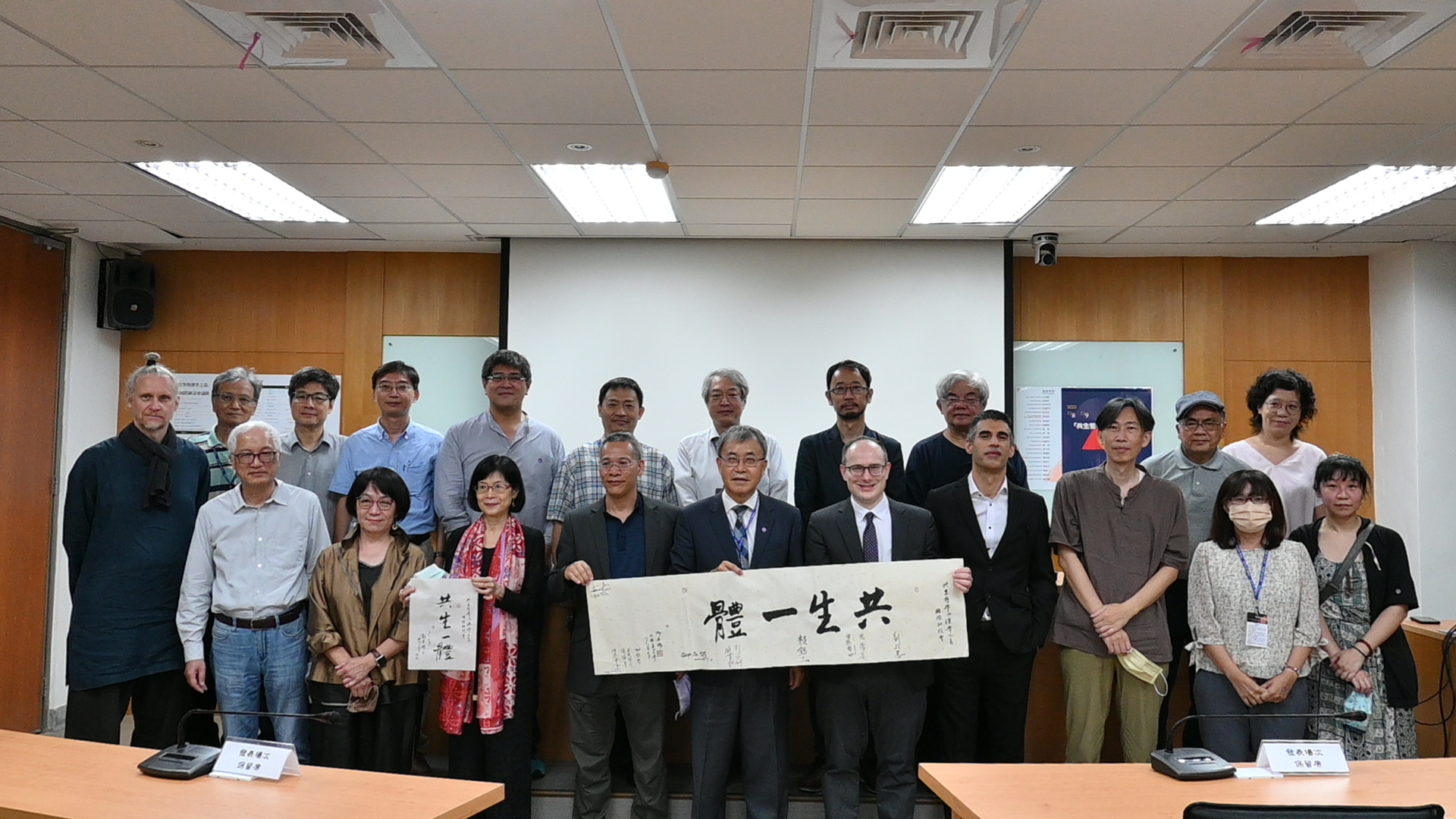
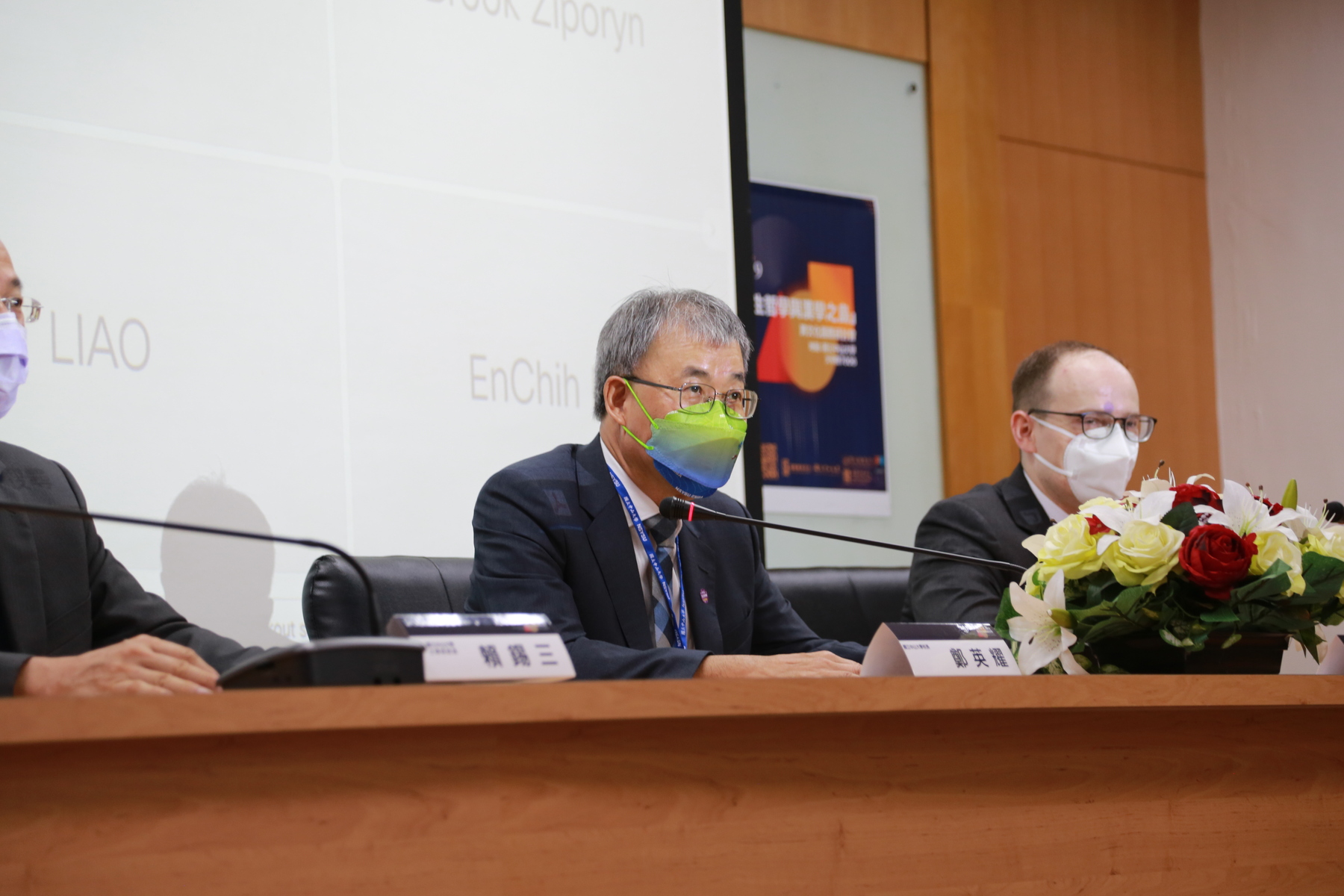
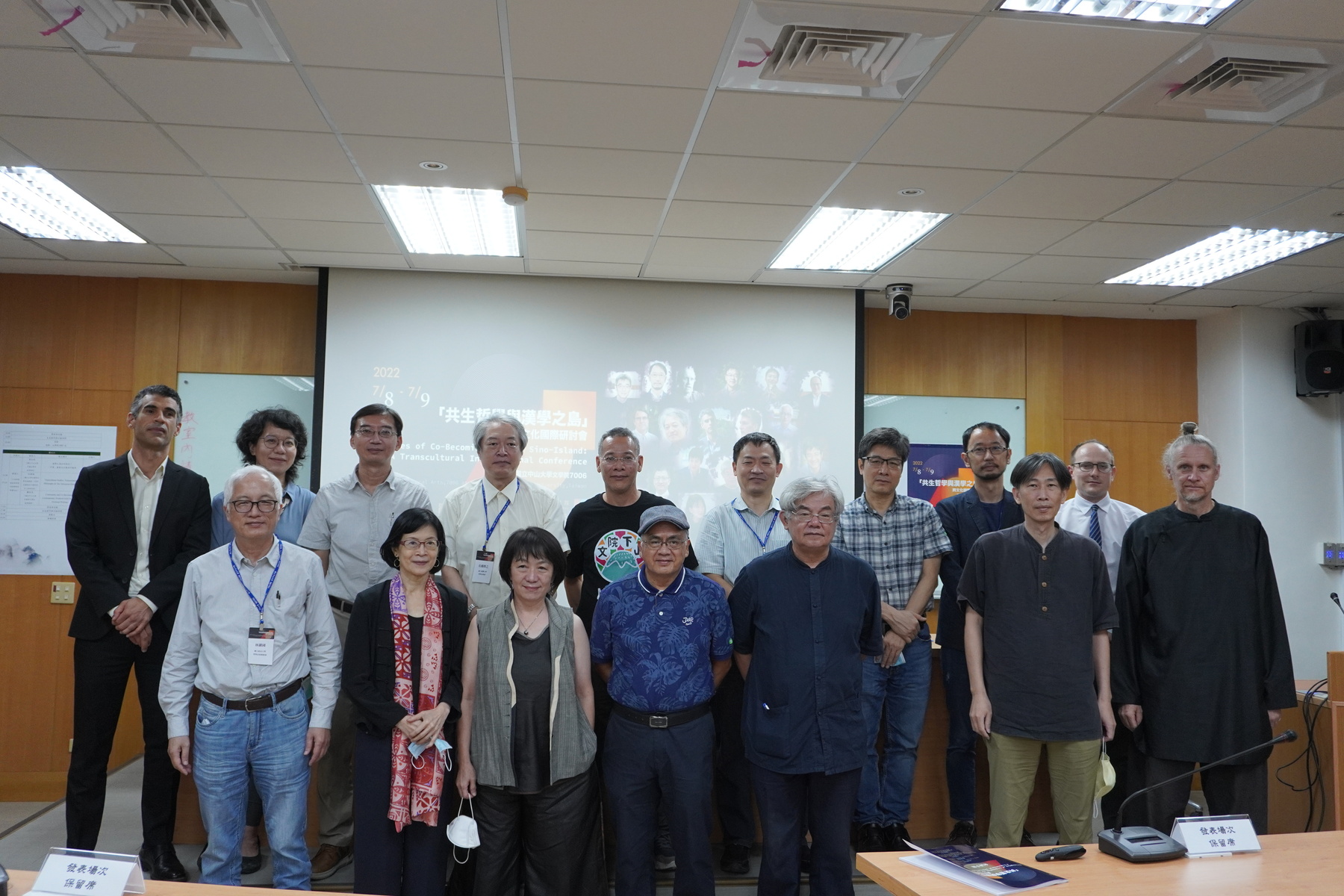
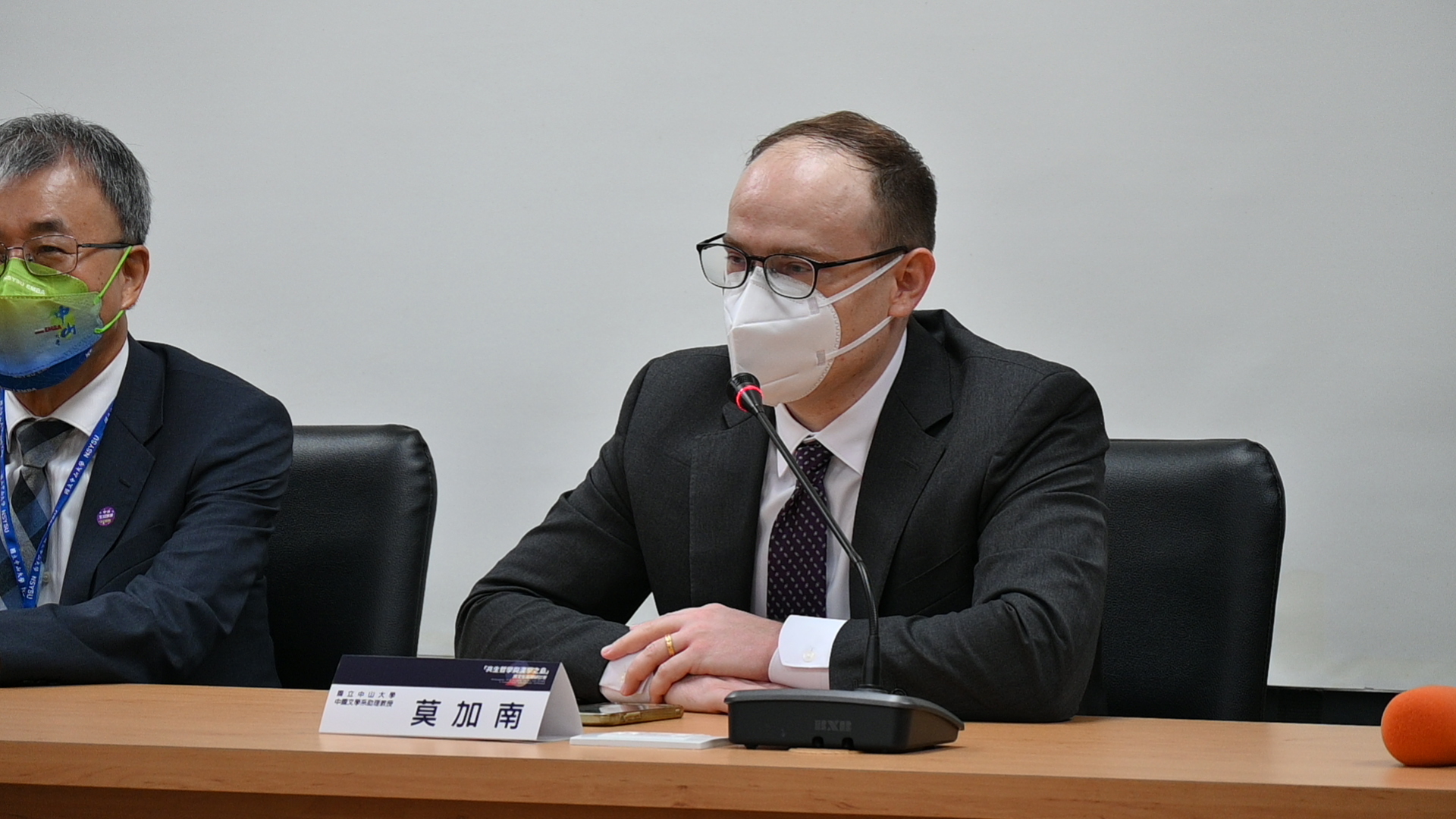
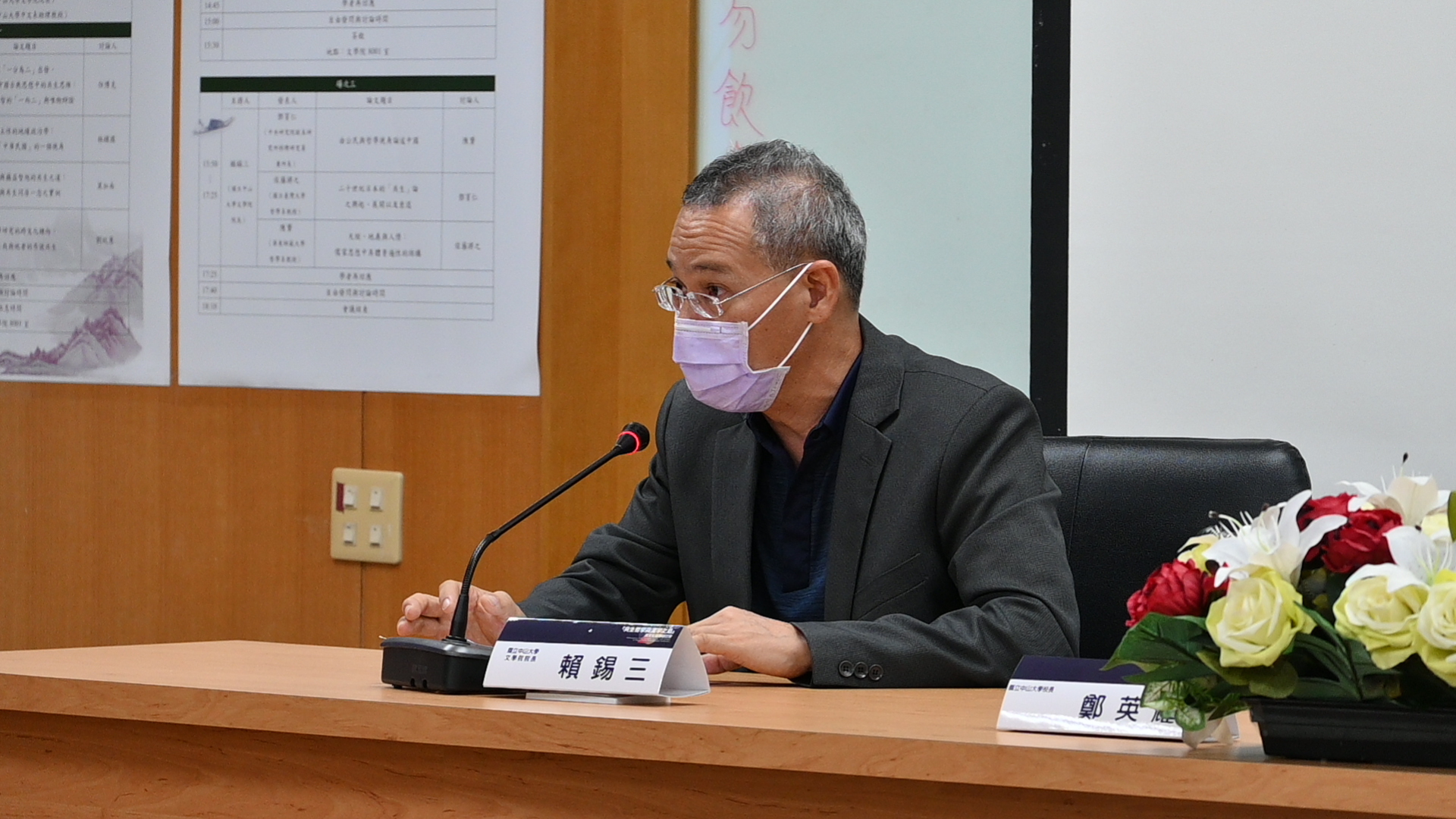
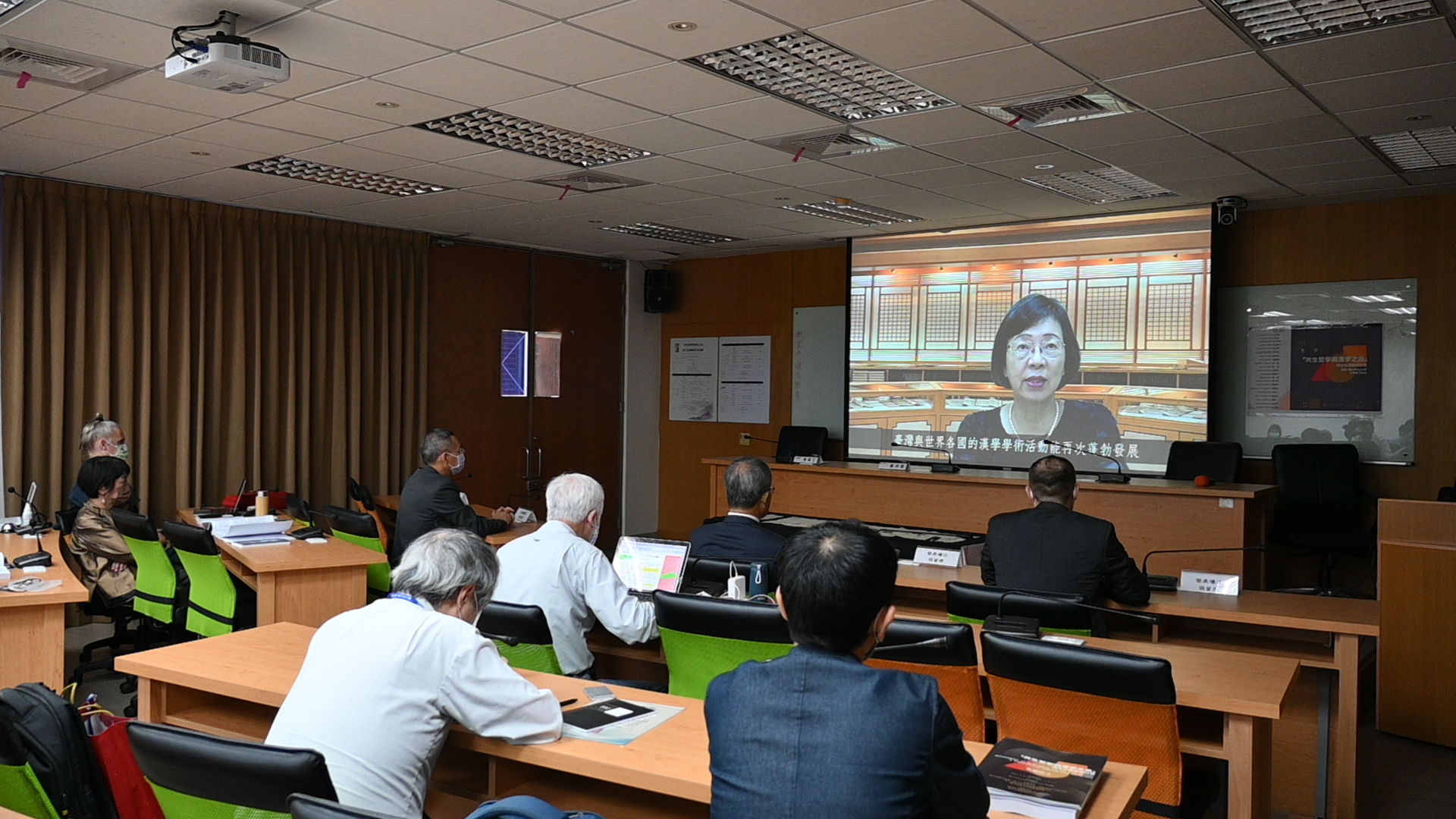
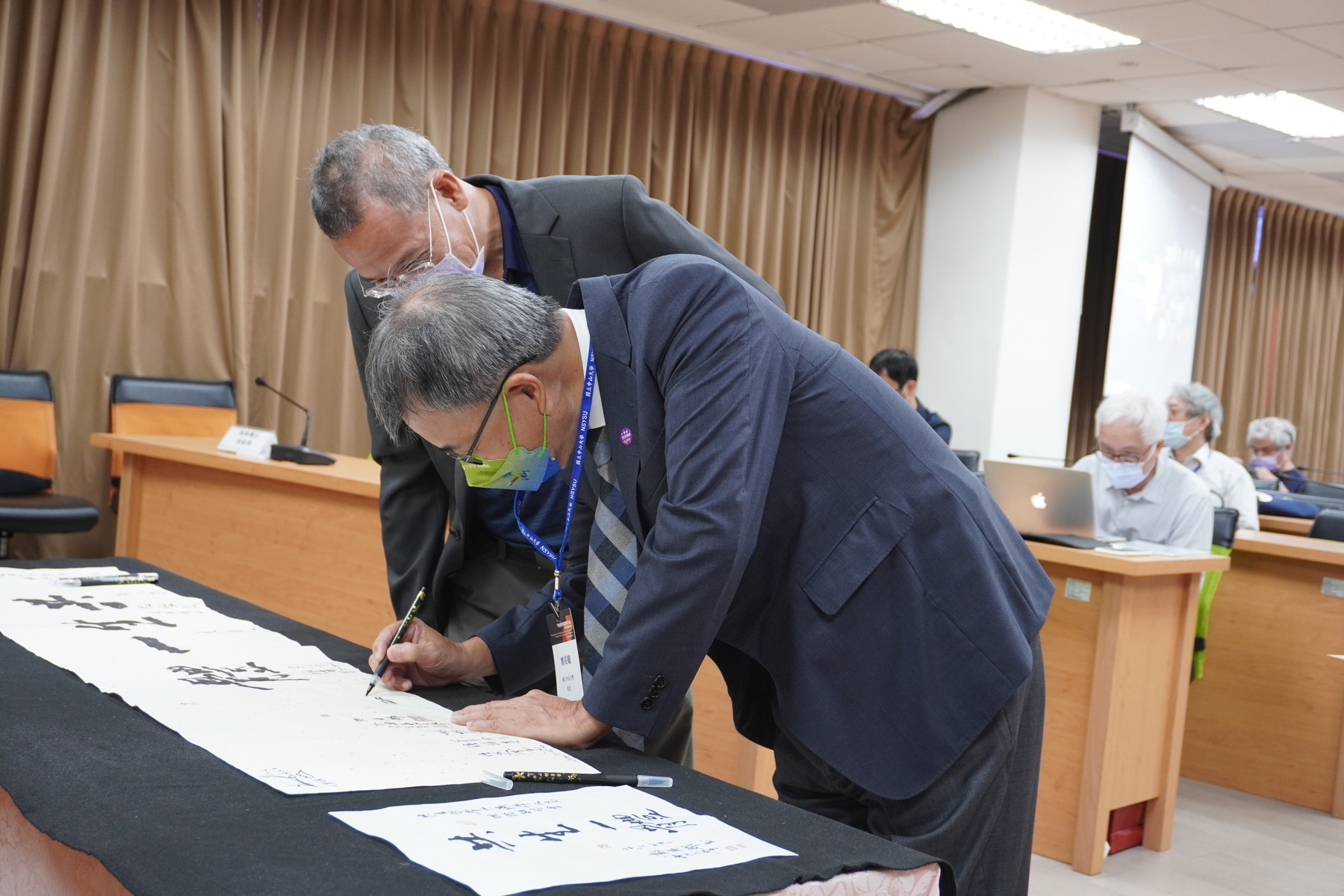
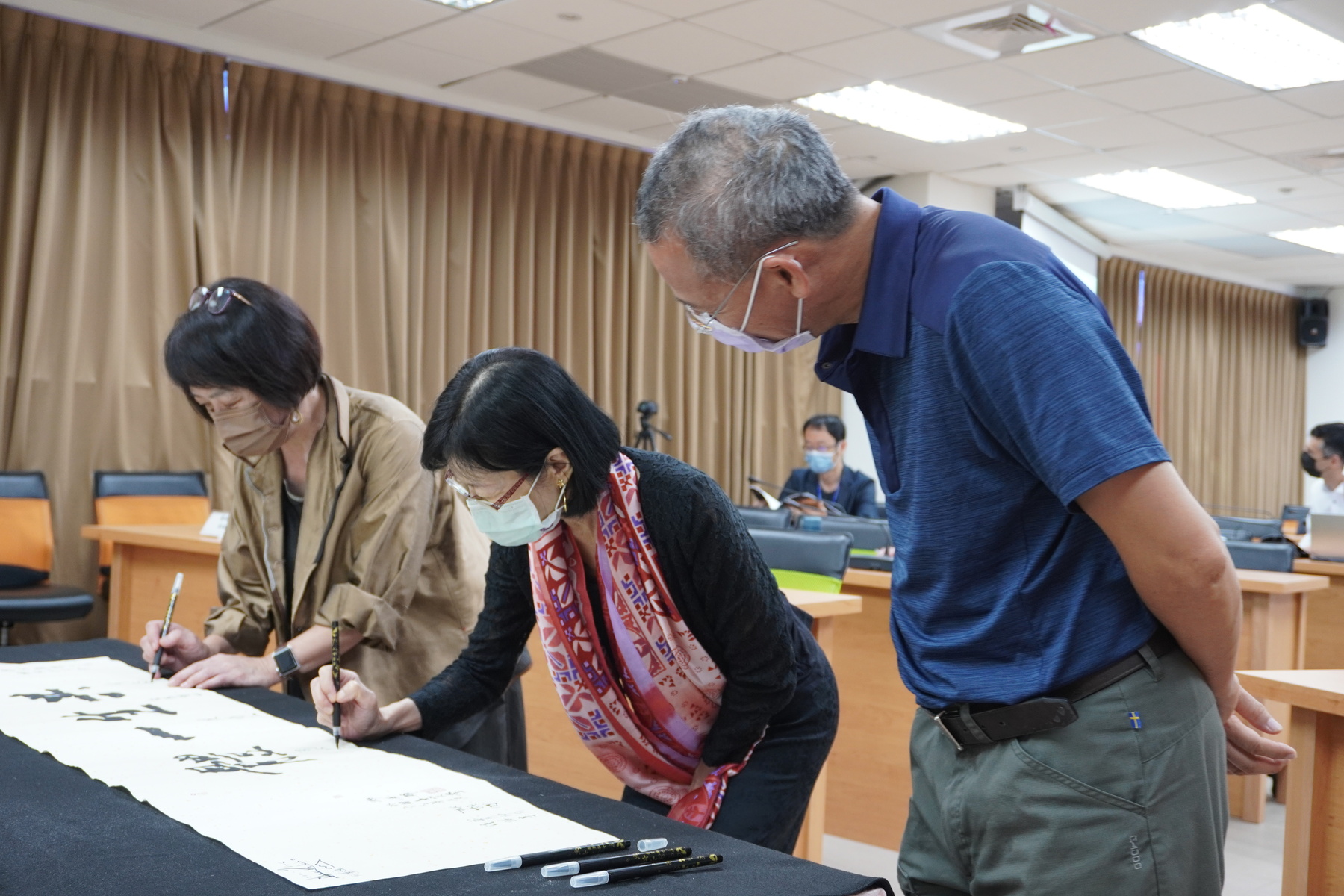
(Provided by College of Liberal Arts) The conference "Philosophies of Co-Becoming and The Sino-Island, A Transcultural International Conference" was organized on July 8th to July 9th 2022. This event was an offline conference with online access for the audience, hosted by The Global Sinology Forum and Department of Chinese Literature and Higher Education Sprout Project at National Sun Yat-Sen University (NSYSU). The co-organizers included Center for Chinese Studies of National Central Library and East Asian Academy for New Liberal Arts, The University of Tokyo.
To celebrate the opening of the conference, NSYSU President Ying-Yao Cheng provided his own calligraphy, writing the words "Co-becoming as One." He also emphasized how meaningful the concepts of "Co-existence, Co-living, and Co-becoming" are at present. Taiwan is expected to become the island of sinology, embracing varied values in the world and being seen by the world. Shu-hsien Tseng, Director General at National Central Library has been very supportive to the establishment of The Global Sinology Forum. She mentioned that it is very well intentioned of NSYSU to organize the conference and create interactive communication among researchers of varied fields. Hsi-San Lai, Dean of College of Liberal Arts emphasized that humanity and the myriad of things are interconnected in complex, interwoven ways. Though the intellectual work of those present at the conference, which ranges across ancient and modern philosophy, as well as East and West, it is possible to bring into being a supple form of cultural power that can powerfully transform hegemonic and uncompromising forms of thought into flexible and reflexive ones. Mark Frederick McConaghy, Assistant Professor of Department of Chinese Literature at NSYSU expressed the vision that Taiwan can act as a bridge to bring many countries together across a range of issues, which is particularly important given the complex state the world currently finds itself in.
There were in total 21 researchers invited as keynote speakers and commentators. All of them generously shared their research regarding different dimensions of the central concept "Philosophies of Co-Becoming." Hsi-San Lai and Dr. Feng Cao from School of Philosophy, Renmin University of China discussed what important resources can be gleamed from The Laozi, developing the humorous, soft, and tolerant mode of thought presented in that classic text. In working through the notion of the Kingly Way from The Mencius as well as the notion of a wisdom that is "rounded and extensive," developed from The Book of Changes, Mark Frederick McConaghy reflected upon the importance of a humanist spirit for contemporary efforts at "Co-Becoming."
Speakers engaged with the concept of co-becoming by working through their given fields of specialization. For example, Prof. Brook A. Ziporyn from the Divinity School at The University of Chicago discussed the concept of "The three thousand multiplicities entailed in each moment of experience" in Tien-t'ai Buddhist thought. Hans-Rudolf Kantor, Professor in the Graduate of Institute of Asian Humanities at Huafan University discussed essential theories in pragmatics and hermeneutics. Ming-Chao Lin, Professor of Department of Philosophy at National Taiwan University took the audience back to Han Dynasty. He specified the dialectic interplay between central government and local authority, unification and co-existence based on the "Qisu" chapter of the Huainanzi. Yun Chen, Professor of Department of Philosophy at East China Normal University, discussed the question of a structure of values both universal and specific by working through the Confucian concepts of the principle of heaven and earth as well as human affect.
Speakers also shared their views of how to put co-becoming theories into practice at present. Rur-Bin Yang, Professor of the Graduate Institute of Philosophy at National Tsing Hua University proposed the concept of "Republic of China as a methodology" to discuss Taiwan’s local cultural characteristics and its geopolitical position. Norman Y. Teng, Distinguished Research Fellow and Director of the Institute of European and American Studies at Academia Sinica emphasized that though Taiwan can be thought of as occupying a marginal position in some respects, in fact the island is a critical point from which to track both larger global trends and variations in political systems. Masayuki Sato, Professor in the Department of Philosophy at National Taiwan University, discussed how the discourse of co-becoming has become influential in 20th century Japan, eventually coming to occupy a place of similar prominence to concepts such as "freedom" and "democracy." Tsuyoshi Ishii, Professor in the Graduate School of Arts and Sciences at the University of Tokyo discussed a mode of thought related to the notion of "Tianxia," as well as that related to the concept of a "Triparte structure." He did so in order to think of how "the ability to distinguish between true and false" can become the political basis for protecting peace and co-becoming.
Wing-cheuk Chan, Ministry of Science Research Chair, Chen-Kuo Lin, Emeritus Professor of the Department of Philosophy at National Chengchi University, and Chen-Yu Chung, Associate Research Fellow of Institute of Chinese Literature and Philosophy at Academia Sinica all discussed similarities between the concepts proposed by Tsung-san Mou and Martin Heidegger. Fabian Heubel, Research Fellow of Institute of Chinese Literature and Philosophy at Academia Sinica discussed the co-relations between Lao Zi and Plato. Jean-Yves Heurtebise, Associate Professor of Department of French Language and Culture at Fu Jen University, Jana S. Rošker, Professor of Department of Asian Studies at University of Ljubljana and Yi-Peng Lai, Assistant Professor of Department of Foreign Languages & Literature NSYSU presented work which ranged across Eastern and Western philosophies, highlighting differences between texts and perspectives, opening up a rich interpretive space. Joyce Chi-hui Liu, Chair Professor at the International Institute for Cultural Studies at National Yang Ming Chiao Tung University discussed a topic that she has long concerned herself with in her work: "the One Divides into Two" and "the One and the Multiple." Hsiao-yen Peng, Adjunct Research Fellow of Institute of Chinese Literature and Philosophy at Academia Sinica discussed the recent transcultural turn in Sinology, examining the contradictions and tensions that emerge from binarial thinking. She examined the ways in which co-existence in cultural and social terms can be developed through practices of paradox and dialectical interplay.
Hsi-San Lai, Dean of the College of Liberal Arts, emphasized the importance of this conference. Aside from unearthing the potential and possibilities within "Co-becoming," there is the hope that through these series of plural discussions, the complexity of co-becoming as a concept can be made manifest to the greatest possible extent. It is thus imperative that we diligently think this topic in order to raise awareness and to explore more dialectical possibilities. As the Taiwanese island and global society are defined increasingly by vexed voices arrayed through binary oppositions, it is hoped that multi-directional dialogue can replace uni-directional critique, making platforms for co-becoming flourish everywhere, making "co-becoming," "freedom," and "democracy" the common resources for all of humanity.
(Edited by Public Affairs Division)
